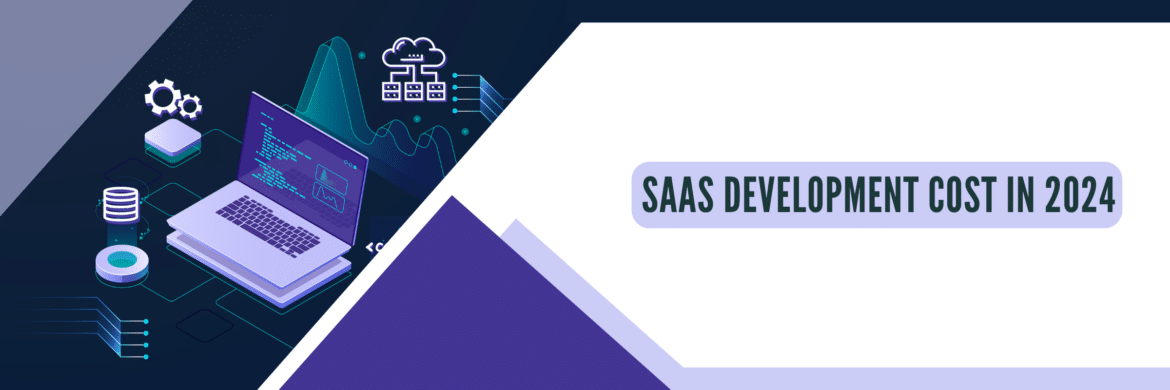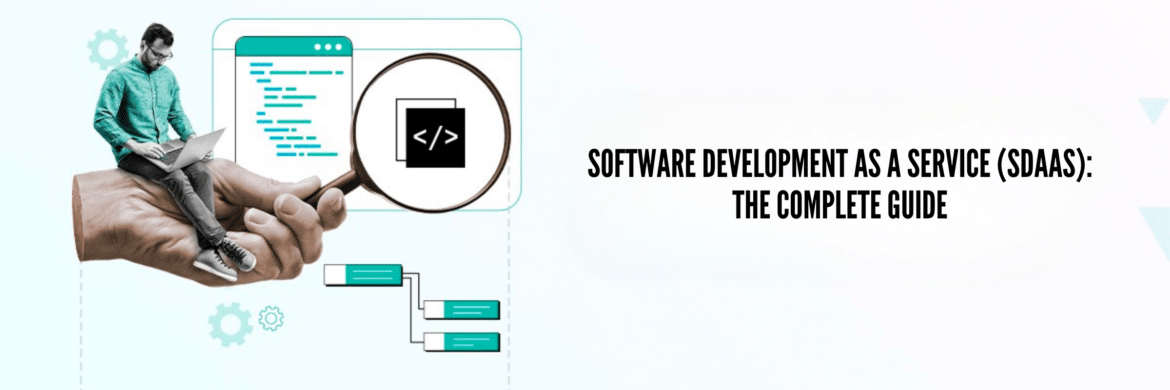
15 Toughest Challenges in Mobile App Development in 2024
Suprabhat Sen | January 23, 2024 , 13 min read
Table Of Content
Welcome to the fast-moving world of mobile app development in 2024, where crafting a standout app is like embarking on a thrilling adventure. Mobile app development has become a vital aspect of business growth and customer engagement in today’s digital age.
As the demand for innovative and user-friendly apps continues to rise, businesses face various challenges in creating and delivering high-quality mobile applications. To stand out from the crowd and deliver a successful app, businesses must navigate through various challenges that arise during the development process.
In this article, we will explore the 15 toughest challenges in mobile app development, offering practical tips to help you conquer these obstacles and ensure your app stands out in the crowded digital space
What are the biggest challenges in mobile application development?
1. Platform Fragmentation
One of the biggest challenges in mobile app development is platform fragmentation. With multiple operating systems, device models, and screen sizes, developers must ensure their app functions seamlessly across different platforms.
For example, Android alone has over 2.5 billion active users worldwide, each using different devices with varying specifications. Adapting the app’s code, user interface, and features to fit each platform’s requirements can be time-consuming and resource-intensive.
Solution:
To address platform fragmentation, developers can employ cross-platform development frameworks like React Native, Flutter, or Xamarin. These frameworks allow developers to write code that can be used on multiple platforms, reducing the need for platform-specific codebases and simplifying the development process.
However, cross-platform development also comes with its own set of challenges, such as performance optimization and maintaining a consistent user experience across platforms.
2. User Interface and User Experience (UI/UX) Design
Creating an intuitive and visually appealing user interface is crucial for the success of a mobile app. Users expect a seamless and enjoyable experience when interacting with an app, and a poorly designed UI/UX can lead to user frustration and abandonment.
Designing interfaces that cater to various user preferences, screen sizes, and accessibility requirements can be a complex challenge.
Solution:
To overcome UI/UX design challenges, developers should collaborate with experienced UI/UX designers. These designers can bring their expertise in understanding user needs and preferences, conducting user research, and creating visually appealing and user-friendly interfaces.
Regular user testing and feedback also play a vital role in refining the UI/UX design and identifying areas for improvement.
Also Read: Mobile App Development Cost in India [Industry-Wise Cost]
3. Performance Optimization
Performance optimization is essential for delivering a smooth and efficient user experience. Users expect fast-loading apps that consume minimal system resources, such as battery and memory. Slow-loading screens, unresponsive UI elements, and excessive battery consumption can lead to user dissatisfaction and app abandonment.
Solution:
Developers should prioritize performance optimization by carefully optimizing code, minimizing resource usage, and implementing efficient algorithms. Profiling tools and performance monitoring can help identify bottlenecks and areas for improvement.
Regular testing on multiple devices and operating system versions is crucial to ensure optimal performance across different platforms.
Also Read: Most Common Mobile App Development Mistakes You Can Avoid Today
4. Security Concerns
Security breaches and data privacy violations are major concerns in mobile app development. Developers must ensure that user data is adequately protected and the app is resistant to hacking attempts.
Implementing encryption, secure authentication mechanisms, and regular security audits are essential to protect user data and maintain the app’s reputation.
Solution:
Developers should collaborate with security experts and penetration testers to assess the app’s security posture and identify vulnerabilities. Adhering to secure coding practices, conducting regular security audits, and staying updated on the latest security trends and best practices are crucial for ensuring the app’s security.
5. Continuous Integration and Continuous Deployment (CI/CD)
Implementing CI/CD practices in mobile app development can help streamline the development process and ensure faster and more efficient deployment of updates and improvements.
However, setting up the infrastructure, configuring build and test pipelines, and ensuring reliability and scalability can be challenging, especially in a mobile app development environment that requires testing on multiple devices and operating system versions.
Solution:
Developers can leverage CI/CD tools and services like Jenkins, Travis CI, or GitHub Actions to automate the build, testing, and deployment processes. These tools enable developers to automate repetitive tasks, reduce the risk of human error, and ensure consistent and reliable app deployment.
6. Compatibility with Multiple Devices
Developing an app that works seamlessly across multiple devices with varying screen sizes, resolutions, and hardware specifications is a significant challenge. Ensuring a consistent user experience and optimal performance on different devices requires thorough testing and optimization.
Solution:
Developers should test the app on a wide range of devices, screen sizes, and operating system versions to identify and address compatibility issues. Responsive design techniques can help ensure that the app adapts to different screen sizes and resolutions.
Regular updates and optimisations based on user feedback and device-specific performance metrics are essential for maintaining compatibility with new devices.
7. Generating Innovative Ideas
In a saturated app market, coming up with innovative ideas that stand out and offer unique value to users can be a challenge. The app should solve a specific problem or cater to a specific need in a way that differentiates it from existing apps.
Solution:
Developers should conduct thorough market research, analyze user needs and preferences, and identify gaps or pain points that existing apps do not address. Collaborating with product managers and business stakeholders and leveraging user feedback can help generate innovative ideas for app development. Regular brainstorming sessions and staying updated on industry trends and emerging technologies can also inspire innovative app concepts.
Also read: Top 12 Benefits of Custom Mobile App Development for Business
8. Limited Resources and Budget
Developing a mobile app requires sufficient resources, including skilled developers, designers, and project managers. Limited resources and budget constraints can hinder the development process and compromise the app’s quality and functionality.
Solution:
Careful planning, resource allocation, and budget management are essential to overcome resource and budget challenges. Prioritizing app features and functionalities based on user needs and business goals can help optimize resource allocation. Outsourcing certain development tasks or leveraging cross-functional teams can also help overcome resource constraints.
9. Choosing the Right Development Technology
Selecting the most suitable development technology for an app is crucial for its success. Native, hybrid, or cross-platform development approaches each have their own advantages and limitations.
Choosing the wrong development technology can result in compatibility issues, performance problems, and increased development time and cost.
Solution:
Developers should carefully evaluate the requirements and goals of the app and choose the development technology that best aligns with those needs. Consider factors such as platform support, performance, development time, and maintenance requirements.
Collaborating with experienced developers or consulting with mobile app development companies can help make an informed decision.
10. Battery Consumption and Performance
Optimizing battery consumption while maintaining optimal app performance is a challenge in mobile app development. Users expect apps to function efficiently without draining their device’s battery excessively.
Solution:
Developers should implement efficient coding practices, minimize background processes, and optimize resource usage to reduce battery consumption. Thorough testing and optimization on different devices and operating system versions can help identify and address any battery-related issues.
Regular updates and improvements based on user feedback and performance metrics can help maintain optimal battery consumption and performance.
11. Simplifying User Experience
Making the user experience simple and intuitive is critical for the success of a mobile app. Users expect apps to be easy to navigate, understand, and use without any unnecessary complexity.
Solution:
Developers should focus on creating a clean and intuitive user interface with clear navigation and minimal steps required to accomplish tasks. Implementing quick tutorials, tooltips, and contextual help can guide users through the app’s features and functionalities. Regular usability testing and gathering feedback from real users can help identify areas of confusion and simplify the user experience.
12. Effective App Marketing
Developers often face challenges in marketing their apps and gaining visibility in a highly competitive app market. Without effective marketing strategies, even the best-designed and developed apps may go unnoticed by potential users.
Solution:
Developers should invest in app marketing strategies that target their specific audience and align with their app’s value proposition. This includes optimizing the app’s metadata and keywords for app store optimization (ASO), leveraging social media platforms and influencer marketing, and implementing targeted advertising campaigns.
Collaborating with digital marketing experts or agencies can help develop and execute effective app marketing strategies.
13. Network Connectivity and Offline Functionality
Ensuring a smooth user experience in scenarios of poor or no network connectivity poses a significant challenge in mobile app development. Users expect apps to function seamlessly both online and offline. Managing data synchronization, handling intermittent connectivity, and providing a reliable offline experience requires careful consideration.
Solution:
Implement robust offline functionality by caching essential data locally and synchronizing with the server when connectivity is restored. Utilize background synchronization tasks and optimize data transfer protocols to minimize the impact on both data usage and user experience. Conduct thorough testing in various network conditions to identify and address potential issues.
14. App Monetization Strategies
Monetizing a mobile app is a crucial aspect of its success, yet choosing the right strategy can be a challenging decision for developers. The oversaturation of advertising, subscription, and freemium models demands a careful approach to balance revenue generation with user satisfaction.
Solution:
Conduct market research to understand your target audience and their willingness to pay for different app features. Tailor your monetization strategy to align with user expectations and the nature of your app.
Offering a variety of payment options, providing value through premium features, and maintaining transparency in pricing contribute to a successful monetization strategy.
15. App Performance Monitoring and User Feedback Utilization
Monitoring app performance after launch and effectively utilizing user feedback for continuous improvement present ongoing challenges for developers. Identifying performance bottlenecks, addressing emerging issues, and incorporating user suggestions in a timely manner are crucial for sustaining the app’s success.
Solution:
Implement robust performance monitoring tools to track key metrics such as app crashes, loading times, and user interactions. Establish a system for collecting and analyzing user feedback through app reviews, surveys, and support channels.
Prioritize and address critical issues promptly, and release regular updates to enhance the app based on both quantitative performance data and qualitative user input. Regularly communicate with your user community to foster trust and transparency in the development process.
Tips for overcoming the challenges of mobile app development
- Understand and Research Your Target Audience: Conduct thorough market research, analyze user needs and preferences, and identify gaps or pain points that your app can address. This will help you develop an app that resonates with your target audience and meets their specific needs.
- Embrace Cross-Platform Development Frameworks: Leverage cross-platform development frameworks like React Native, Flutter, or Xamarin to build apps that work seamlessly across multiple platforms. This reduces the need for separate platform-specific codebases and simplifies the development process.
- Collaborate with UI/UX Designers: Work with experienced UI/UX designers to create visually appealing, user-friendly interfaces that enhance the overall user experience. Conduct user testing and gather feedback to refine and improve the UI/UX design.
- Prioritize Performance Optimization: Optimize your app’s performance by implementing efficient coding practices, minimizing resource usage, and conducting thorough performance testing. Regular updates and optimisations based on user feedback and performance metrics are crucial for maintaining optimal app performance.
- Implement Robust Security Measures: Ensure that your app is secure by implementing encryption, secure authentication mechanisms, and regular security audits. Stay updated on the latest security trends and best practices to protect user data and maintain the app’s integrity.
- Embrace CI/CD Practices: Implement continuous integration and continuous deployment practices to streamline the development and deployment processes. Automate repetitive tasks and leverage CI/CD tools and services to ensure consistent and reliable app deployment.
- Test and Optimize for Multiple Devices: Test your app on a wide range of devices, screen sizes, and operating system versions to identify and address compatibility issues. Optimize your app’s design and functionality to provide a consistent user experience across different devices.
- Choose the Right Development Technology: Carefully evaluate the requirements and goals of your app and choose the development technology that best aligns with those needs. Consider factors such as platform support, performance, development time, and maintenance requirements.
- Optimize Battery Consumption and Performance: Implement efficient coding practices, minimize background processes, and optimize resource usage to reduce battery consumption. Thorough testing and optimization on different devices and operating system versions can help identify and address any battery-related issues.
- Focus on User Experience Simplicity: Create a clean and intuitive user interface with clear navigation and minimal steps required to accomplish tasks. Implement quick tutorials, tooltips, and contextual help to guide users through the app’s features and functionalities.
Take Your Mobile App Development Journey to the Next Level!
ScaleupAlly is here to support you with our expert team of mobile app developers and industry-leading strategies.
Contact us now to get started on your mobile app development project.
Conclusion
Mobile app development is a challenging yet rewarding process. By understanding the common challenges and implementing the tips provided, developers can overcome these obstacles and deliver successful mobile applications. From platform fragmentation to security concerns and performance optimization, each challenge presents an opportunity for growth and innovation. Remember to prioritize user experience, collaborate with experts, and stay updated on industry trends to stay ahead in the competitive mobile app market.
Frequently Asked Questions
Q: What are the biggest challenges in mobile app development?
The biggest challenges in mobile app development include platform fragmentation, user interface and user experience design, performance optimization, security concerns, compatibility with multiple devices, generating innovative ideas, limited resources and budget, choosing the right development technology, battery consumption and performance, simplifying user experience, and effective app marketing.
Q: How can developers overcome the challenges of mobile app development?
Developers can overcome the challenges of mobile app development by understanding their target audience, embracing cross-platform development frameworks, collaborating with UI/UX designers, prioritizing performance optimization, implementing robust security measures, embracing CI/CD practices, testing and optimizing for multiple devices, fostering a culture of innovation, allocating sufficient resources and budget, choosing the right development technology, optimizing battery consumption and performance, focusing on user experience simplicity, and developing an effective app marketing strategy.
Q: What is the importance of user experience in mobile app development?
User experience is crucial in mobile app development as it directly impacts user satisfaction and the success of an app. A seamless and intuitive user interface, clear navigation, and minimal steps required to accomplish tasks enhance user experience. By prioritizing user experience, developers can ensure that their app meets user expectations, retains users, and receives positive reviews and ratings.
Q: How can developers optimize app performance?
Developers can optimize app performance by implementing efficient coding practices, minimizing resource usage, conducting thorough performance testing, and regularly updating and optimizing the app based on user feedback and performance metrics. Testing the app on a wide range of devices and operating system versions and optimizing for compatibility and responsiveness are also crucial for achieving optimal app performance.
Related Blogs

The Ultimate Guide to Outsourcing SaaS Development
Discover the benefits, best practices, and potential pitfalls of outsourcing SaaS development. Learn how to choose the right partner and manage your project effectively.
Suprabhat Sen
Jul 22 ,
16 min read

SaaS Development Costs: How Much Does It Cost in 2024?
Wondering how much it costs to build a dream SaaS product? This guide provides a detailed look at SaaS development costs, giving you a roadmap for budgeting.
Manu Jain
Jul 19 ,
8 min read

Software Development as a Service(SDaaS): The Complete Guide
Explore how SDaaS can streamline your development process, reduce costs, and boost your competitive edge. Learn how SDaaS can empower your business.
Suprabhat Sen
Jul 18 ,
11 min read




